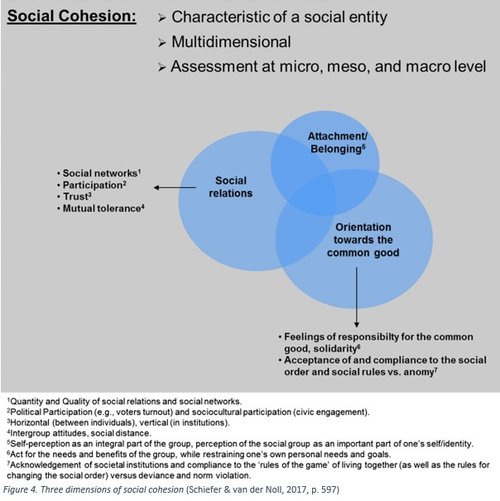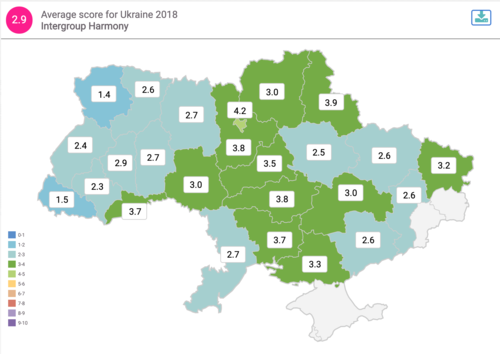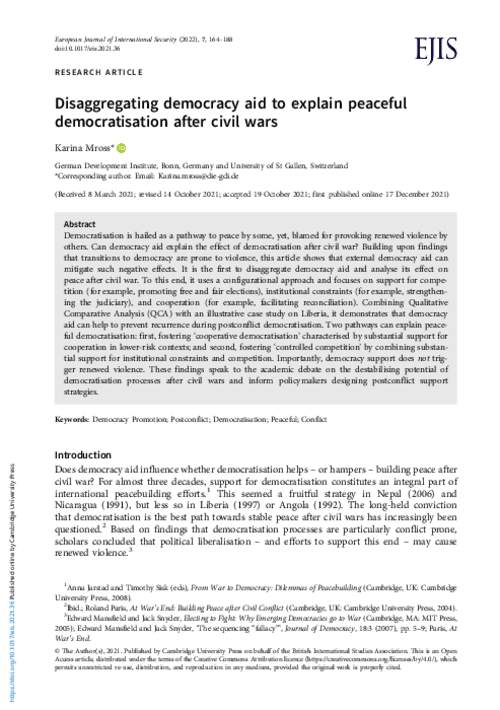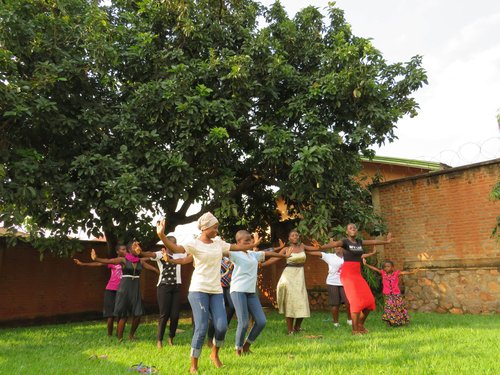SCORE South Sudan
Key facts
Identity/feeling of belonging
Participation
Equality/Inequality
Orientation towards the common good
Solidarity
Shared values
Cooperation
Tolerance
Connectedness
Vertical dimension (between individuals or groups and institutions)
Overview
SCORE findings are based on the analysis of a household survey which was administered to 2,139 people in 69 Bomas in five regions: Aweil, Bor, Bentiu, Rumbek and Yambio.
Social cohesion was measured based on six primary indicators: Inter-Generational Cohesion; Peaceful Citizenship; Intergroup Harmony with Outgroups; Community Cooperation; Inclusive Civic Identity; Readiness for Violence. Composite scores for each dimension and each region were measured on a scale of 0-10, with 0 indicating a very poor level of social cohesion, and 10 denoting the highest level of societal cohesiveness. Our conceptualization of social cohesion includes a wide variety of personal, communal and institutional phenomena. We sought to explain social cohesion by investigating factors which contribute to resilience and peaceful citizenship (or lack thereof) at two levels: the individual and the communal. We measured personal attitudes and ideologies (such as attitude towards other ethnic groups, or perceptions about gender equality), communal relations and boma-specific phenomena (such as the intergenerational harmony or the level of services and assets that a Boma possesses), and attitudes and behaviours of the Chiefs of each Boma. To achieve this objective three parallel QNRs were administered to individual, community and chieftain respondents. The three parallel surveys were designed to assess social and political factors associated with sustaining peace outcomes. The first survey was administered to a random selection of 20 individuals in each Boma and focused on subjective choices, attitudes and experiences, such as support for the peace agreement or individual approaches to conflict resolution. The second survey was administered to 10 people in each boma and explored issues relating to community level assets and processes which shaped individual experiences. This included questions which assessed public services, the quality of community leadership and the nature of civic activism. The third survey was administered to Chiefs in the selected Boma, who provided their personal perspectives on a range of social, economic and political issues. The 3 surveys broadly tested different dimensions of social and political life, with selected questions featuring in all 3 instruments. The attitudes of the Chief, in particular, were used as a proxy for assessing institutional cohesion, with a focus on the effective functioning on institutions responsible for peace and public service delivery.




